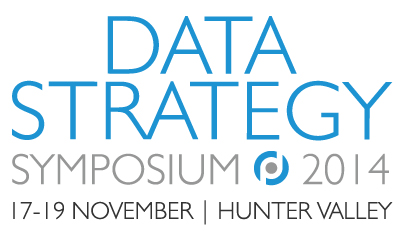
The Data Strategy Symposium 2014 run by Ashton Media will be held in the Hunter Valley, NSW, Australia, on the 17-19 November, where the leading minds in online and offline marketing and advertising will converge to share best practices and insights.
Keynote speaker
Dr Shawna Thayer, Global Leader, Retail Practice, Analytic Partners, is one of the keynote speakers at the Data Strategy Symposium and will present ‘Big Data, Bad Decisions: Driving Business Improvement and avoiding the pitfalls of Data Analytics‘.
About the presentation
The presentation will cover how to drive quantifiable business value from a significant investment, managing and leveraging industry changes linking CMOs to CIOs, and getting digital attribution right.
Dr Thayer has broad experience in retail and CPG across marketing and merchandising functions. She is a strategic consultant in marketing optimisation, customer segmentation, pricing, assortment, brand identity, packaging, product development and industry trends.
In today’s post, Mark Abay of Ashton Media asks Dr Thayer 3 questions about utilising data to make good business decisions, common data challenges, and the key learnings attendees to her presentation will walk away with.
Mark:
Organisations today have more data available to them than ever before. How do they ensure that they utilise that data to make good business decisions?
Shawna:
Many organisations struggle with leveraging the wealth of data that is now available with the need to remain nimble and swift with their decisions. Striking a balance between the level of data and analytics required and the ultimate business implementation that will result is key.
When leaders make business decisions requiring large investments or have significant risk involved, they should rely on analytic support to ensure success. In these cases, leadership should leverage data across multiple phases of the project – for measuring historical results, for forecasting future outcomes, and for swift course-correction during implementation – to ensure optimal business growth.
However, it is imperative that leaders not feel paralysed to make swift business adjustments as they wait for analytic data. Particularly when making smaller decisions with limited risk or investment, organisations should leverage business insights, existing knowledge, and experience for decision-making.
We recommend a simple process to ensure that leaders are leveraging the right level of data and analysis to address their business needs. It is important to first understand the business objective and decision ramifications. Next, organisations should take an inventory of the data readily available to address the issue (ensuring that quantitative data, qualitative research, and business experience across functions is included).
After those assessments, we can determine the best data and analytic approach for supporting the key decision-makers. This balanced approach can offer both the confidence in decision outcomes that result from robust data with the speed of action required to stay competitive in our consumer-focused business environment.
Mark:
When working with clients, what are the most common data challenges they face?
Shawna:
For many organisations, the investment in “Big Data” has left one large gap for implementation – few leaders have the “Big Analytics” expertise to glean strategic insight and business action from the data available. While many companies have invested in data collection, faster processing, BI implementation and tools, the data available is under-utilised as the biggest, strategic insights get lost in the details.
Automatic reports are generated and real-time updates are frequent, but insights regarding short- and long-term strategic goals are missing. There is no comprehensive story to provide strategic direction or a holistic point of view; no action is taken from the data available.
When this happens, leaders are left with little data support for their most pressing concerns and the importance of data is diminished as a business priority. Another challenge to the wide range of data available today is that it is harder to develop internal expertise on new data elements and their optimal use.
For example, digital and social marketing has changed rapidly in the last few years. Staffing internal experts to stay on the cutting edge of digital data collection, data management, and attribution analysis while managing the execution of daily campaigns and annual budgets is difficult. This is a particular challenge in industries with rapid growth or robust competition where the business climate changes rapidly.
Finally, we have found that many of our clients struggle to pool data sources across functions to ensure a holistic and comprehensive use of data. Many organisations have adopted new approaches for data collection, but often those approaches are built by internal teams with specific needs. These efforts lack a holistic perspective of business use.
For example, we have seen client Marketing teams invest in sophisticated data enhancements to improve direct marketing response, only to find out later that the data was not aligned with the promotional planning tools leveraged by merchandising leaders. This results in siloed data structures that are more difficult to integrate.
Mark:
What key learnings will attendees to your presentation at the Data Strategy Symposium walk away with?
Shawna:
Analytic Partners’ presentation will focus on solutions to address the challenges mentioned above. We will:
1. Provide perspective on organisational strategies that can help leaders glean business improvement from their data solutions such as staffing considerations, organisational structure, and aligning the goals for Data Infrastructure teams with Data Insights professionals.
2. Share case studies of organisations that have successfully implemented a data-driven business culture and share business actions that resulted from this cultural shift.
Don’t miss Dr Shawna Thayer at the Data Strategy Symposium 2014 on the 17th-19th November at Cypress Lakes Resort, Hunter Valley. Her presentation titled Big Data, Bad Decisions: Driving Business Improvement and avoiding the pitfalls of Data Analytics will take place at 09:30hrs on Wednesday 19th November, 2014.
About Mark Abay - Content Director, Ashton Media
Mark is Content Director at Ashton Media. It's his job to create interesting and engaging conference programs that stretch the thinking of our attendees. Mark works closely with our industry advisors to ensure the conference content is aligned with the needs and interests of our audiences.


